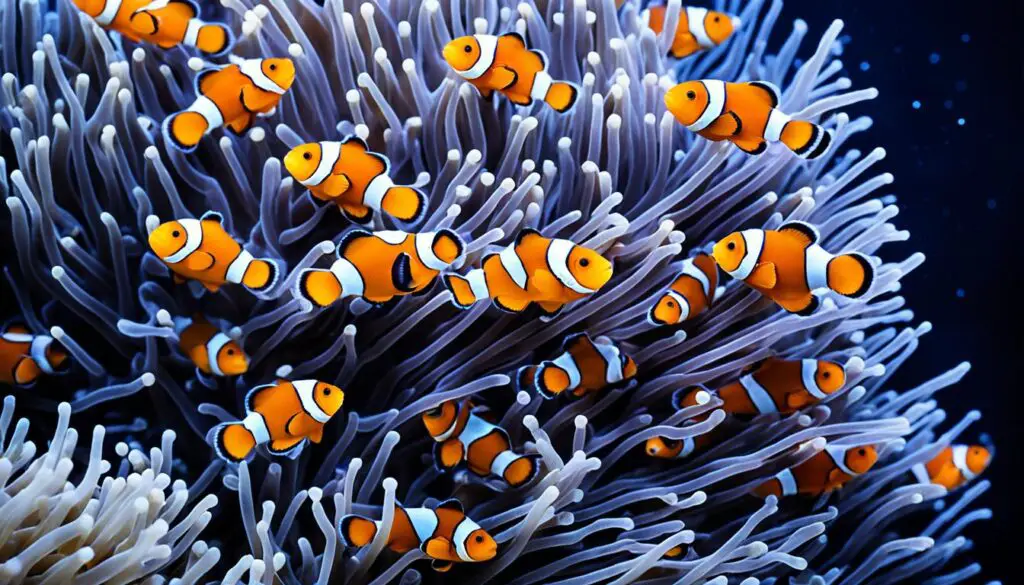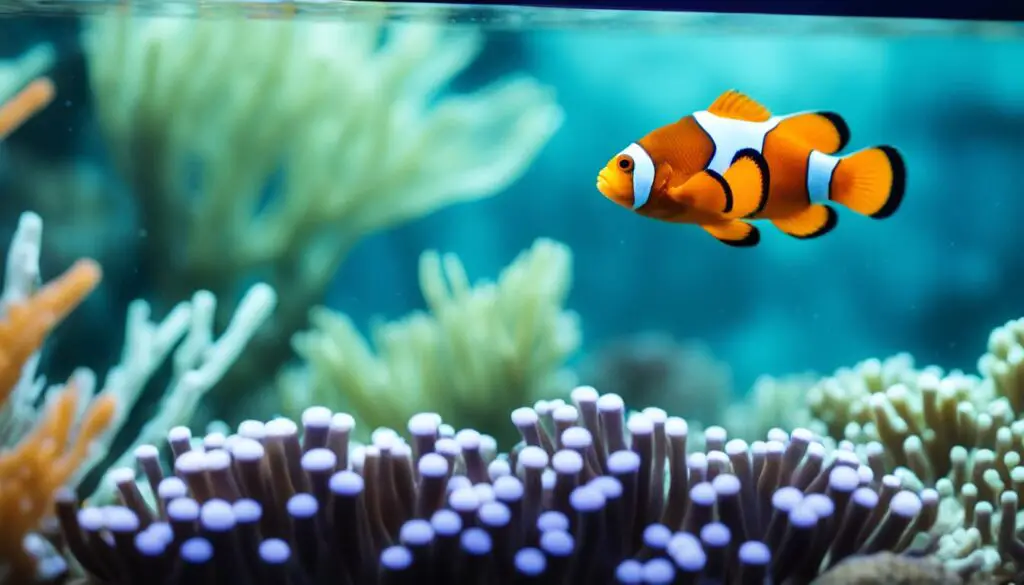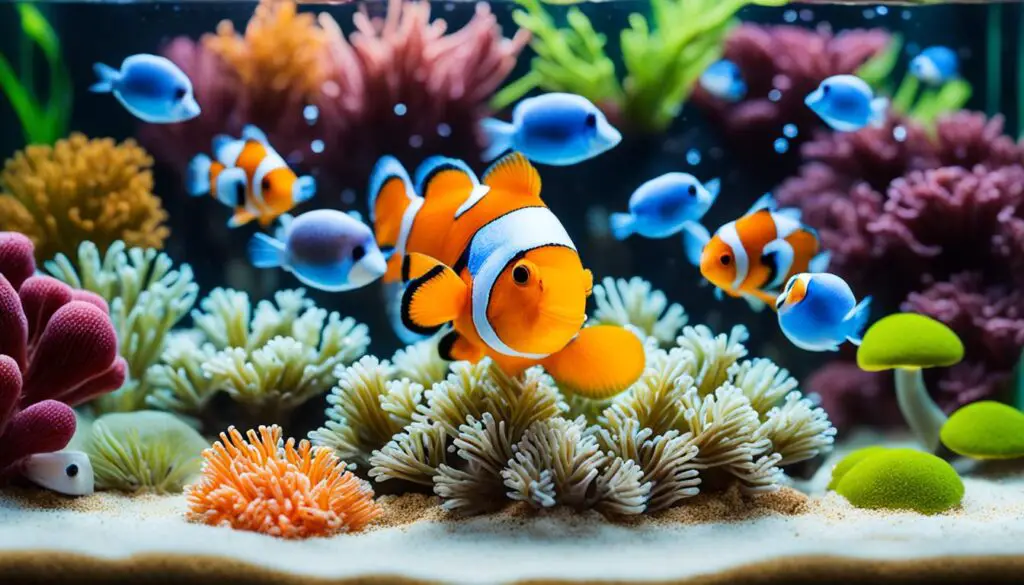Are Octopus Omnivores
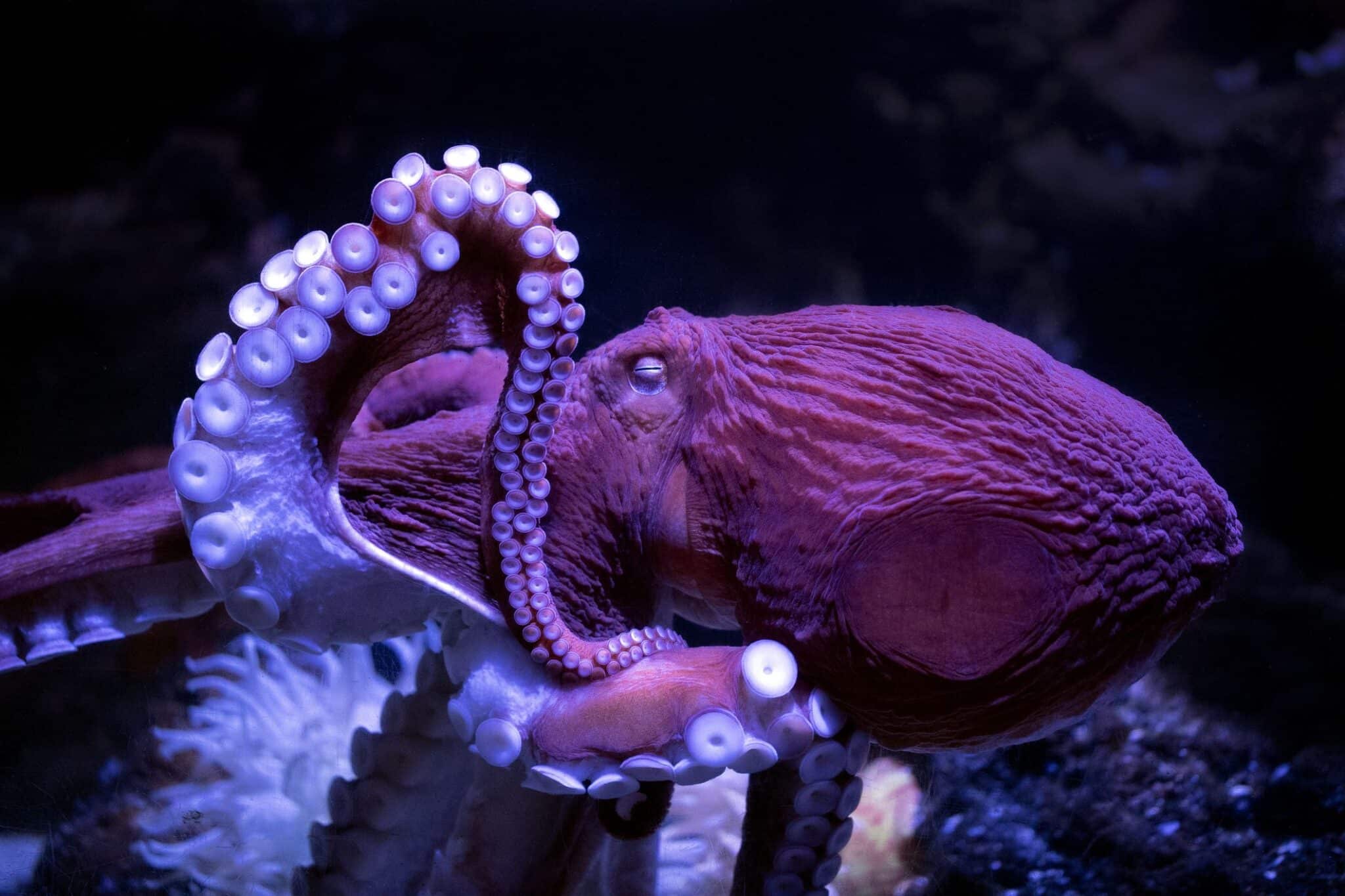
Introduction
Are Octopus Omnivores: Octopuses, members of the remarkable class Cephalopoda, have captivated scientists and enthusiasts alike for centuries due to their extraordinary intelligence, astonishing flexibility, and mysterious behavior. These intriguing creatures inhabit the world’s oceans, displaying an astonishing array of adaptations to suit their aquatic environments. One of the fundamental questions that have intrigued researchers is their dietary habits.
We delve into the intricate world of octopus feeding behavior, a subject that has garnered increasing attention in recent years. Octopuses possess a highly evolved nervous system, exceptional problem-solving skills, and an astonishing ability to manipulate their surroundings. These attributes, combined with their incredible diversity of species, make them a captivating case study for understanding the ecological roles they play within marine ecosystems.
We will examine the current state of knowledge regarding octopus diets, considering factors such as species variation, hunting strategies, and ecological niches. By shedding light on the dietary habits of octopuses, we hope to gain a deeper understanding of these enigmatic creatures and their role in the complex web of marine life.
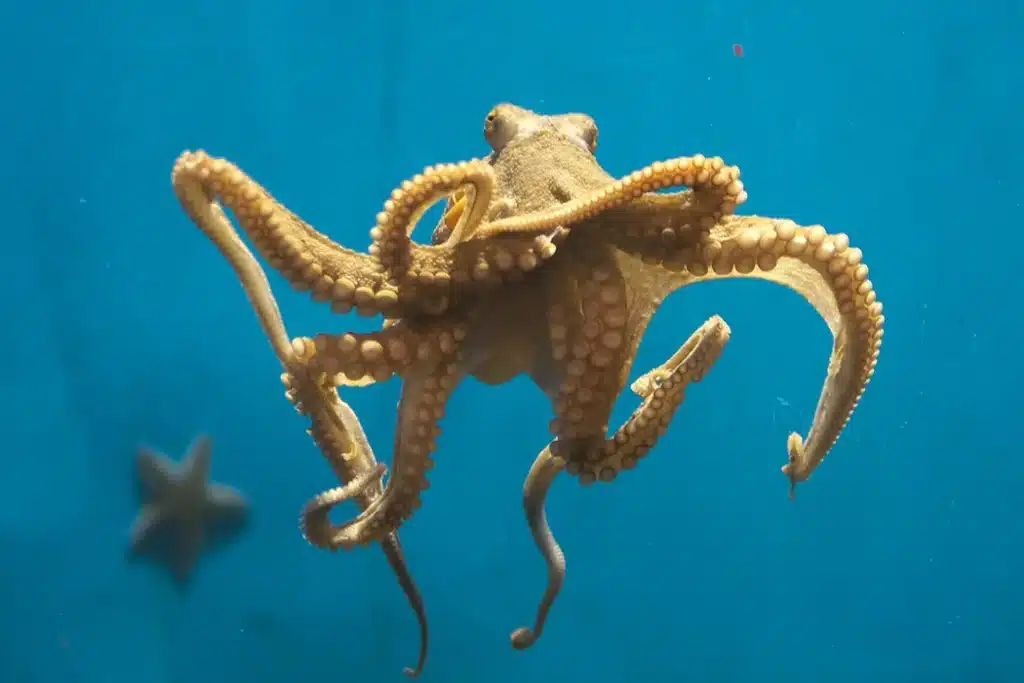
Are octopus carnivores?
Octopuses are carnivorous, and they feed on a variety of prey, including fish, crustaceans, and mollusks. They are skilled hunters and use their eight arms to capture their prey.
These highly skilled hunters have developed a wide range of strategies to capture their prey. They use their extraordinary intelligence, keen eyesight, and incredible dexterity to stalk, ambush, and catch various marine creatures, including fish, crustaceans, and mollusks. Octopuses are equipped with a beak-like mouth that can deliver a powerful bite, allowing them to break through the hard shells of crustaceans and access the soft flesh inside.
While they are primarily carnivorous, octopuses may exhibit some degree of dietary flexibility, occasionally consuming different types of prey depending on their environment and food availability. However, it’s important to note that they do not typically consume plant matter in their diets, which is why they are categorized as carnivores. Octopuses’ remarkable ability to adapt their hunting techniques and dietary preferences makes them intriguing subjects for the study of marine ecology and predator-prey interactions in the ocean.
Do octopus eat omnivores?
Octopuses are carnivores and typically eat fish, clams, crabs, and snails.
Octopuses are primarily carnivorous creatures, and their diet primarily consists of other marine organisms such as fish, crustaceans, mollusks, and various invertebrates. They are highly skilled predators, using their intelligence and dexterity to capture prey. Octopuses are not known to specifically seek out and consume other omnivorous creatures as part of their diet. Their feeding habits are more focused on capturing prey that aligns with their carnivorous nature.
Octopuses’ hunting strategies are tailored to capture the specific types of prey found in their environment. They are well-equipped with a beak-like mouth to crack open shells and access the soft flesh of their prey, which is typically other animals.
While octopuses are not herbivorous, they do exhibit some dietary flexibility depending on food availability. In some cases, they may consume various marine organisms, including those that could be classified as omnivores. However, this consumption would be more incidental rather than a specific dietary preference.
Octopuses are not considered to have a preference for consuming omnivores, as their primary diet consists of carnivorous prey. Their feeding habits are adapted to their carnivorous nature and their ability to capture a wide variety of marine animals in their diverse aquatic habitats.
What does octopus eat?
Adult octopuses feed on crabs, clams, snails, small fishes, and even other octopuses. All species of octopus have venom of varying levels of toxicity, which they inject using a beak that is similar to a bird’s. They typically hunt at night, pouncing on their prey and wrapping it in the webbing between their arms.
Octopuses are voracious carnivores with a diverse diet that reflects their remarkable adaptability as marine predators. Their menu primarily consists of various marine animals, and what an octopus eats largely depends on its species, size, habitat, and local food availability.
In general, octopuses favor prey such as fish, crustaceans (like crabs and shrimp), and mollusks (including clams, oysters, and snails). Their hunting prowess is fueled by their extraordinary intelligence and agility, which they employ to stalk, capture, and subdue their chosen prey. Octopuses are equipped with a sharp, parrot-like beak that allows them to pierce shells and access the soft flesh within, making them particularly adept at consuming creatures with protective exoskeletons.
While carnivorous by nature, octopuses can exhibit some degree of dietary flexibility. They may occasionally scavenge on carrion when live prey is scarce. In some cases, they may even consume smaller conspecifics (members of the same species) or individuals of other cephalopod species.
Their dietary adaptability, along with their capacity to exploit various hunting techniques and camouflage strategies, underscores their role as key predators in marine ecosystems. Octopuses play an essential role in regulating prey populations and maintaining the balance of oceanic food webs, making them intriguing subjects of study for marine biologists and ecologists.
Is octopus a vegetarian?
Octopus, a shellfish product, is not vegan.
They are strict carnivores, which means their diet primarily consists of other animals, especially those found in marine environments. Octopuses have evolved as efficient and highly skilled predators, with a preference for a wide range of prey, including fish, crustaceans, mollusks, and various invertebrates.
Octopuses possess physical adaptations that are well-suited for carnivorous feeding. They have a powerful beak-like mouth that allows them to break through the shells of crustaceans and access the soft flesh inside. Their hunting strategies often involve stealth, intelligence, and the use of camouflage to surprise and capture their prey.
While octopuses are known for their adaptability, their diet remains firmly within the carnivorous realm. They do not consume plant matter or exhibit vegetarian tendencies. Instead, they are key predators in marine ecosystems, playing vital roles in maintaining the balance of marine food webs.
Octopuses are not vegetarians but are skilled carnivores with specialized hunting techniques and a preference for consuming a variety of marine animals. Their role in marine ecology highlights the importance of understanding their dietary habits and their impact on the dynamics of the underwater world.
Are octopus carnivores or omnivores?
Carnivores
Octopuses are carnivores, and they actively forage or hunt their prey. Many octopuses envelop prey with their webbed arms—kind of like a hug, except not as friendly. If their meal comes encased in a hard shell, the octopus pierces through the shell with its beak.
Octopuses are primarily carnivores, with a diet that mainly consists of other marine animals. They are skilled hunters that pursue a wide variety of prey, including fish, crustaceans, mollusks, and various invertebrates. Octopuses are equipped with a sharp, beak-like mouth that allows them to break through the shells of crustaceans and access the soft flesh within, highlighting their carnivorous nature.
While octopuses are predominantly carnivorous, some species may exhibit limited omnivorous tendencies. In certain situations where food resources are scarce, they may opportunistically consume algae, detritus, or plant matter, but such instances are relatively rare compared to their carnivorous consumption.
The classification of octopuses as primarily carnivores is based on their biology and specialized adaptations for hunting and capturing prey. Their intelligence, camouflage abilities, and dexterity make them formidable predators in the marine ecosystem. Their dietary preferences and hunting strategies are closely tied to their evolutionary history and the specific ecological niches they occupy.
Octopuses are primarily carnivores, but their adaptability and opportunistic feeding behaviors allow for some degree of dietary flexibility, which can vary among species and environmental conditions. However, their fundamental nature as carnivores remains a defining characteristic of these remarkable marine creatures.
How do octopuses consume their food?
Octopuses employ a fascinating array of adaptations and techniques to consume their food. Their feeding process is a testament to their remarkable intelligence and evolutionary specialisation as marine predators.
Hunting: Octopuses are skilled hunters, using their keen eyesight, excellent problem-solving abilities, and remarkable dexterity to locate and capture their prey. They employ a combination of stealth, camouflage, and patience to stalk and ambush their victims.
Capture: Once an octopus has cornered its prey, it uses its powerful and sharp beak-like mouth to puncture and pierce through the prey’s body or shell. This beak serves as a versatile tool for breaking through tough exoskeletons or shells, allowing access to the soft flesh within.
Venom: Some octopus species possess venomous salivary glands that inject toxins into their prey to immobilise or paralyze it. This venom helps subdue struggling prey, making it easier for the octopus to consume.
Consumption: After capturing and immobilising their prey, octopuses use their radula, a specialised feeding organ equipped with small, raspy teeth, to scrape off and ingest the flesh of the prey. The radula functions like a file, allowing the octopus to efficiently consume its meal.
Digestion: Once ingested, the prey is subjected to enzymatic digestion within the octopus’s digestive system. Octopuses are known for their rapid digestion, which helps them maximize energy intake.
Octopuses are formidable hunters and predators, using their intelligence, adaptability, and unique anatomical features to capture and consume a wide variety of marine prey. Their feeding strategies are a testament to their status as highly evolved carnivorous creatures in the marine world.
Do octopuses have any unique hunting or feeding strategies?
Octopuses indeed possess a fascinating array of unique hunting and feeding strategies that set them apart in the underwater world. Their remarkable adaptability and intelligence enable them to excel as both predators and scavengers.
One of the most distinctive features of octopus hunting is their extraordinary camouflage ability. They can change the color and texture of their skin to blend seamlessly with their surroundings, making them virtually invisible to unsuspecting prey. This chameleon-like skill allows them to approach prey undetected and launch surprise attacks.
Octopuses are also equipped with a powerful beak that resembles a parrot’s beak, which they use to puncture shells and tear apart crustaceans and mollusks. Their keen sense of touch, thanks to sensitive suckers on their tentacles, helps them locate and capture prey with remarkable precision.
In addition to their hunting prowess, octopuses are known for their inventive problem-solving abilities. Some species have been observed using tools, such as coconut shells, to create protective shelters or to access hard-to-reach prey.
Octopuses are not just solitary hunters; they can employ cooperative hunting strategies when tackling larger or more elusive prey. Their flexible and adaptive feeding behaviors underscore their status as some of the ocean’s most remarkable and enigmatic creatures.
Can octopuses exhibit cannibalistic behavior?
Octopuses can indeed exhibit cannibalistic behavior, and this intriguing phenomenon is not uncommon within their species. Cannibalism among octopuses typically occurs under specific circumstances and can serve various purposes.
One common scenario where cannibalism may occur is during mating. Male octopuses have a shorter lifespan than females and often die shortly after reproducing. In some cases, a male may approach a female with the intention of mating, but she may view him as potential prey instead, leading to cannibalism. This behavior can be driven by the female’s need for sustenance, as producing and guarding her eggs demands a significant amount of energy.
Cannibalism among octopus hatchlings can also happen. When octopus eggs hatch, the young octopuses, known as hatchlings or paralarvae, are incredibly tiny and vulnerable. In the confined spaces of the egg cluster, they may turn to cannibalism, preying on their unhatched siblings as a source of food.
Cannibalistic behavior in octopuses is not uncommon and can serve as a survival strategy, driven by the need for nourishment or other environmental factors. It underscores the complex and sometimes ruthless nature of these highly adaptable and intelligent marine creatures.
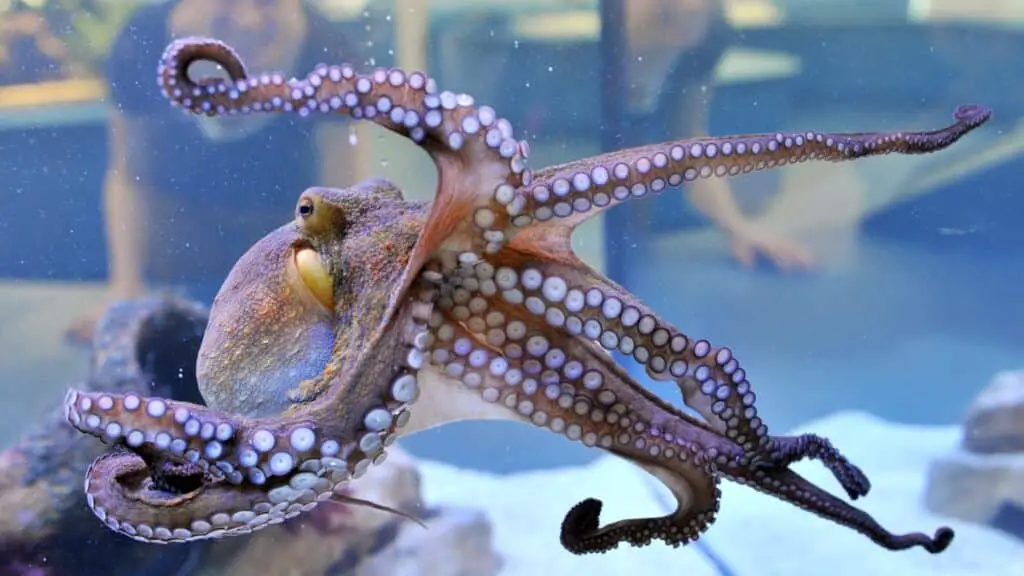
Conclusion
The dietary habits of octopuses are a fascinating subject that continues to intrigue scientists and marine enthusiasts alike. Through our exploration, we have uncovered a nuanced picture of octopus feeding behavior.
While it is true that many octopus species exhibit remarkable dietary flexibility, consuming a wide range of prey items, from crustaceans to fish and even scavenging on carrion, it is important to recognize the significant variation among species. Some octopuses have more specialized diets and display preferences for specific types of prey or habitats.
Their feeding strategies are often shaped by their ecological niches and environmental conditions. Octopuses are skilled hunters, using their intelligence, camouflage abilities, and dexterity to capture prey efficiently.
Octopuses can be considered opportunistic feeders, adapting their diets to the available food sources in their habitats. This adaptability is a testament to their survival prowess in the ever-changing marine world.
Our understanding of their dietary habits is a reminder of the complexity of marine ecosystems and the intricate roles that octopuses play within them. As we continue to explore the mysteries of the ocean, the octopus remains a symbol of adaptability, intelligence, and the ongoing wonders of the deep.

